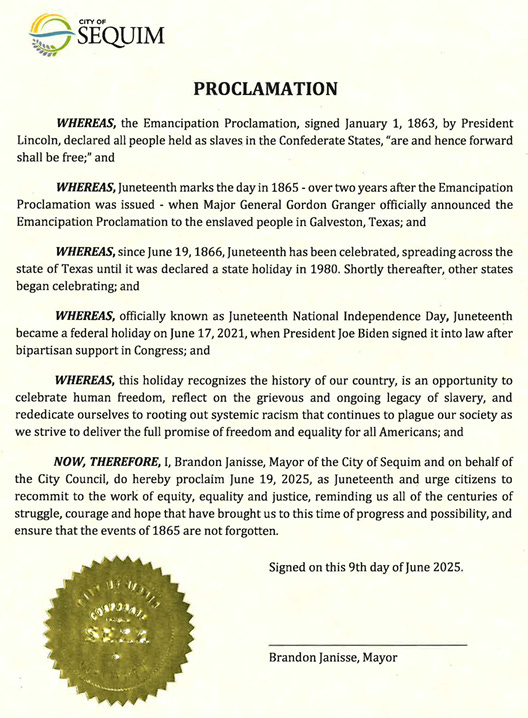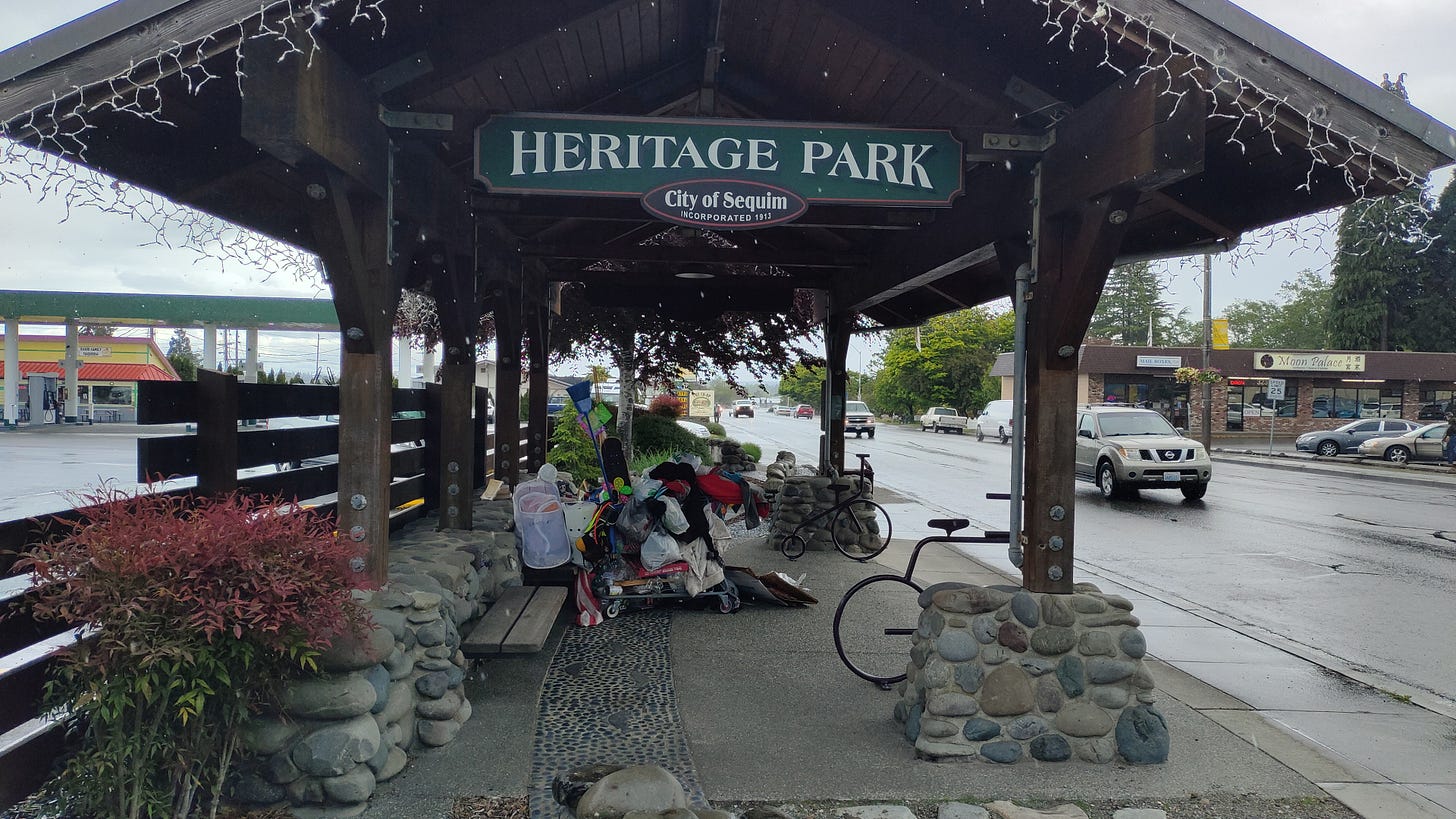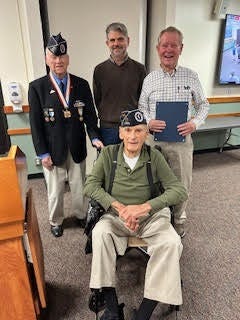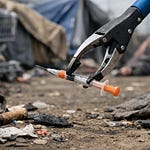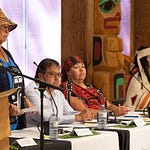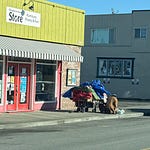While Sequim’s city leaders devote time to virtue-signaling proclamations for Pride and Juneteenth, they’ve stayed silent on the fatal assault of a local artist—and forgotten the veterans who made their proclamations possible. In a city unraveling outside its own chambers, it’s time to ask: what do our leaders really value?
Drive past Sequim City Hall on any given day, and you’ll likely see the symptoms of a city struggling with reality: shopping carts piled outside, homeless individuals sleeping on benches, and silence from inside the chambers. But don’t worry—your elected officials are hard at work.
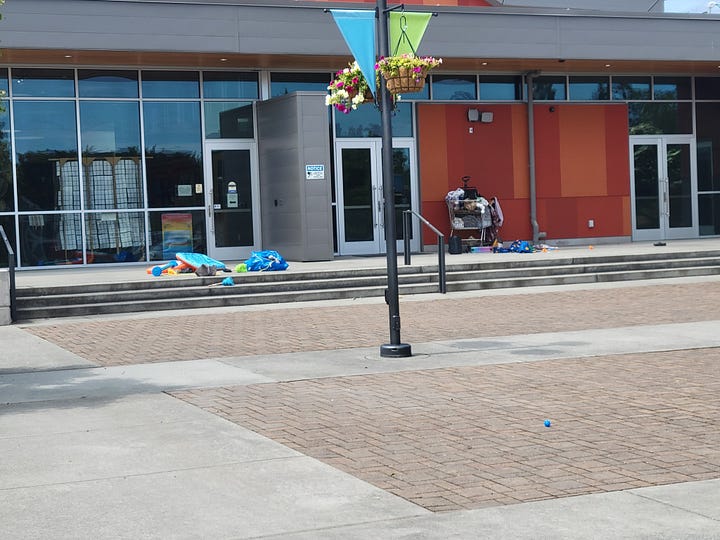
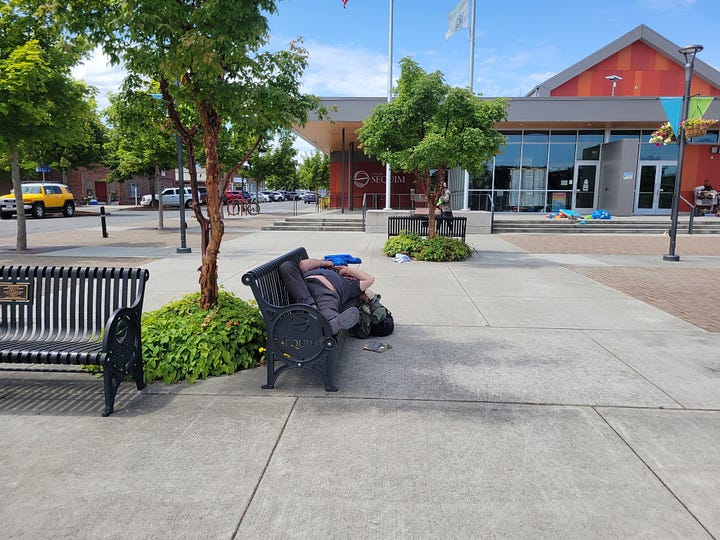
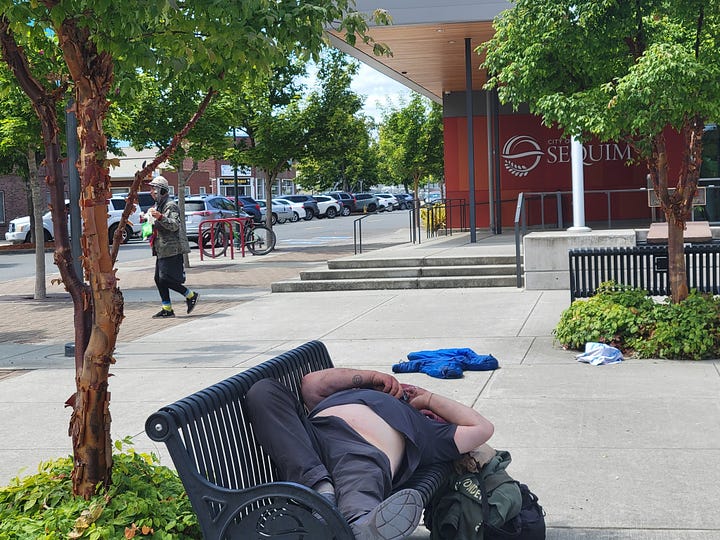

Earlier this month, the Sequim City Council issued not one, but two proclamations—part of its ongoing mission to “foster an exceptional quality of life” and promote a “safe, welcoming, and diverse community.” So how did city leadership put those values into action? By issuing a Juneteenth press release and a proclamation packed with acronyms for Pride Month.
The Juneteenth proclamation reminded residents to “reflect on human freedom, the grievous and ongoing legacy of slavery, and rededicate ourselves to rooting out systemic racism that continues to plague our society.” A weighty message—especially from a city that said nothing when local artist Richard Madeo was fatally assaulted. Local leaders and media are seemingly uninterested in justice because Madeo was white, and his accused attacker wasn’t.
Next up was the Pride Month proclamation, with Mayor Brandon Janisse earnestly reading the acronym “2SLGBTQIA+” eight separate times.
[Proclamations begin at 1:59:00 in the video below.]
For those keeping track, that stands for Two-Spirit, Lesbian, Gay, Bisexual, Transgender, Queer or Questioning, Intersex, and Asexual. The Mayor clarified each letter, careful not to miss a syllable.
The moment was delivered with sincerity—but felt disconnected from the moment outside City Hall, where real people are struggling, not with pronouns, but with survival.
Yesterday, a different kind of proclamation came from the Clallam County Board of Commissioners. This one marked Korean War Remembrance Day, honoring the 75th anniversary of the war’s outbreak. The resolution didn’t mention ideologies or identities—it named names: six Clallam County men who died in the war. They were among the 33,628 Americans who gave their lives in Korea, a conflict so often forgotten it's been called "The Forgotten War." Another 2,000 died even after the ceasefire was signed.
Two Korean War veterans—now well into their 90s—were in attendance. The proclamation was read by Commissioner Randy Johnson, himself a Vietnam veteran. It was brief, solemn, and powerful. No acronyms. No hashtags. Just gratitude.
Equal time for equal sacrifice?
When we dedicate an entire month to celebrating people based on who they sleep with, but only one day to those who fought and died to preserve the freedoms we now take for granted, something’s wrong.
And I say that as a gay man.
Pride matters. Representation matters. But equity cuts both ways. You don’t build a just society by flipping the imbalance—by trading one form of neglect for another. You build it by remembering what deserves celebration, and what demands reverence.
We have young people today who can name every color of a Pride flag but can’t find Korea on a map. We have elected officials more fluent in progressive slogans than in the history of the men and women who bled for this country. That isn’t progress. That’s disconnection.
There’s room in this country for both Pride and patriotism. But if we’re going to dedicate weeks or months to one group’s recognition, we’d better make sure we’re not doing it at the expense of those who made that recognition possible in the first place.
So yes—pass your proclamations. Paint your crosswalks. Fly your flags. But don’t forget the ones who never came home.
Last Equitable Wednesday, readers were asked if the concept of “equity” in our county has resulted in a fairer system—or a more divided one. Of 203 votes:
3% said it’s more fair
91% said it’s less fair
3% said it’s about the same
3% are still deciding



